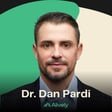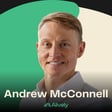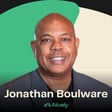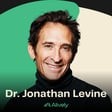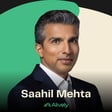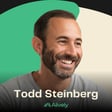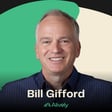
How To Stop Emotional Eating with Dietician Abby Langer - E21
Do you find yourself struggling to maintain a balanced diet? Are you unsure how to address emotional eating habits? Perhaps you've tried different exercise routines and diets, only to feel frustrated by a lack of sustainable results and unhappy with your overall well-being. In this episode, we delve into useful strategies for addressing both the physical and deeper emotional side of our diets, and guide you towards a more healthy relationship with food.
Abby Langer is a renowned dietitian and the author behind "Good Food, Bad Diet," which focuses on identifying and neutralizing negative core beliefs to achieve long-lasting dietary health. Abby is driven by a mission to prevent nutritional misinformation from exploiting people's resources and health. She has worked extensively both in clinical nutrition, and nutrition media and consulting. Abby’s work and writing focuses on body respect and intuitive-style eating. In her hit podcast, "Aggressive Salad: Nutrition with a Bite", she seeks to throw out the nutrition fiction and bring in the facts. She has a dedicated and regularly engaged following in the media, on social media and on her blog, which averages 100,000 readers each month.
“Eat for how you want to feel.” - Abby Langer
In this episode you will learn:
- The importance of a balanced exercise routine, including strength training and cardio, particularly for women over 50.
- How Abby integrates nature and outdoor activities like walking and swimming into her lifestyle despite weather challenges.
- Insights into Abby's non-obsessive approach to sleep and the use of earplugs to enhance sleep quality.
- Practical advice for parents on modeling healthy behaviors and using neutral language about food to foster better eating habits in children.
- The significance of addressing emotional and psychological aspects of eating habits to achieve meaningful dietary changes.
- The role of social connections in maintaining mental health and the communal experience of sharing food.
Resources
- Connect with Abby on Instagram: https://www.instagram.com/langernutrition
- Find out more about Abby’s research, writings and offerings: https://abbylangernutrition.com/
- Listen to her podcast, “Aggressive Salad: Nutrition with a Bite”: https://podcasts.apple.com/us/podcast/aggressive-salad-nutrition-with-a-bite/id1633107473
- Shop all the products Abby mentions in the episode: https://alively.com/products/abbylanger
This podcast was produced by the team at Zapods Podcast Agency:
https://www.zapods.com
Find the products, practices, and routines discussed on the Alively website:
https://alively.com/

